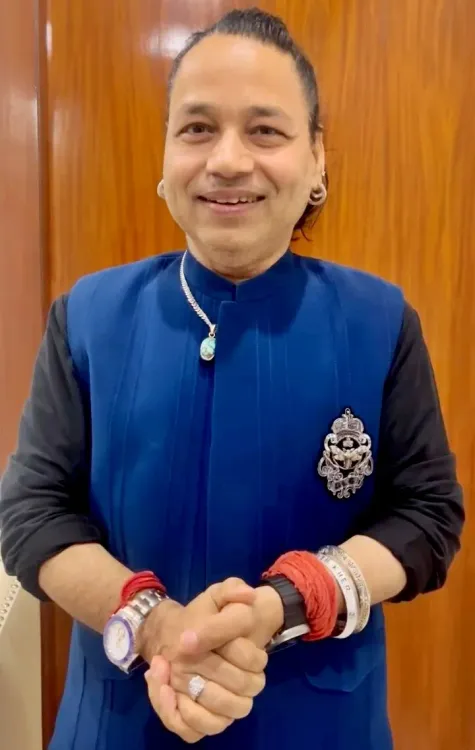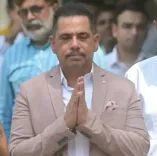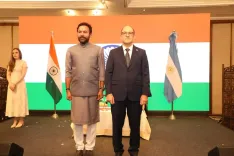How is Kailash Kher Shaping the Rise of Independent and Folk Music in India?

Synopsis
Key Takeaways
- Kailash Kher advocates for a holistic view of music.
- The rise of independent and folk genres is reshaping the industry.
- Platforms are vital for promoting diverse musical voices.
- Cultural literacy is essential for understanding art and heritage.
- Kailash Kher's academy focuses on nurturing talent beyond traditional music education.
Mumbai, July 17 (NationPress) Renowned singer Kailash Kher has shared insights on the transforming music landscape in India, pointing out the increasing significance of independent and folk music in recent times.
When discussing the notable shifts in Bollywood music over the last decade, Kher expressed to IANS that he prefers to consider music as a unified entity instead of confining it to Bollywood alone. He highlighted the remarkable growth of independent and non-film music throughout this timeframe, crediting various platforms that have provided opportunities for a range of voices. Kailash Kher also underscored the enhanced visibility of folk musicians, including the Manganiyars and Ghumantu tribes—artists who were traditionally embedded in local communities but are now gaining deserving prominence and national acknowledgment.
“I don’t categorize music solely as ‘Bollywood’ music. I regard music broadly. A surge in non-film and independent music has blossomed—thanks in part to platforms like ours. Folk artists, Manganiyars, and Ghumantu tribes—individuals who performed within communities—are now receiving stage time and recognition. The awareness of this is expanding.”
Addressing the rising emphasis from many leaders on regional dialects and divisive narratives, the Saiyyan hitmaker urged individuals to embrace “the art of true living” and contemplate the depth and richness of Indian culture.
Kailash remarked, “Currently, we are discussing art. Purely art. Education through art. Evolution through art. Cultural literacy via art. Learn the art of authentic living. Compare our lifestyle with that of the West. The differences will be evident.”
Moreover, while promoting Indian folk culture through his academy, KKALA, the Padma Shri awardee remarked, “KKALA, which stands for Kailash Kher Academy for Learning Art, is our modest initiative dedicated to cultural literacy—the art of authentic living. The main concept is to learn how to live through art. Most music schools in India focus on songs and ragas, but they overlook our fundamental personality, our listening skills, our understanding of lyrics, or our cultural heritage.”
“In India, it’s uncommon for actors or prominent personalities to attend a musician’s performance. In contrast, in the West, you’ll find entire families of celebrities buying tickets and filling venues. This shift in cultural sensibility must commence here. Our academy transcends merely teaching singing or music; it’s about uncovering one’s true self. Perhaps an enrollee came for music, but we discover their incredible camera skills—they might be an outstanding DOP. Or someone’s writing could reveal them as a natural poet. Our educators, mentors, and life coaches guide them. We assist in revealing the uncut diamonds,” he concluded.








